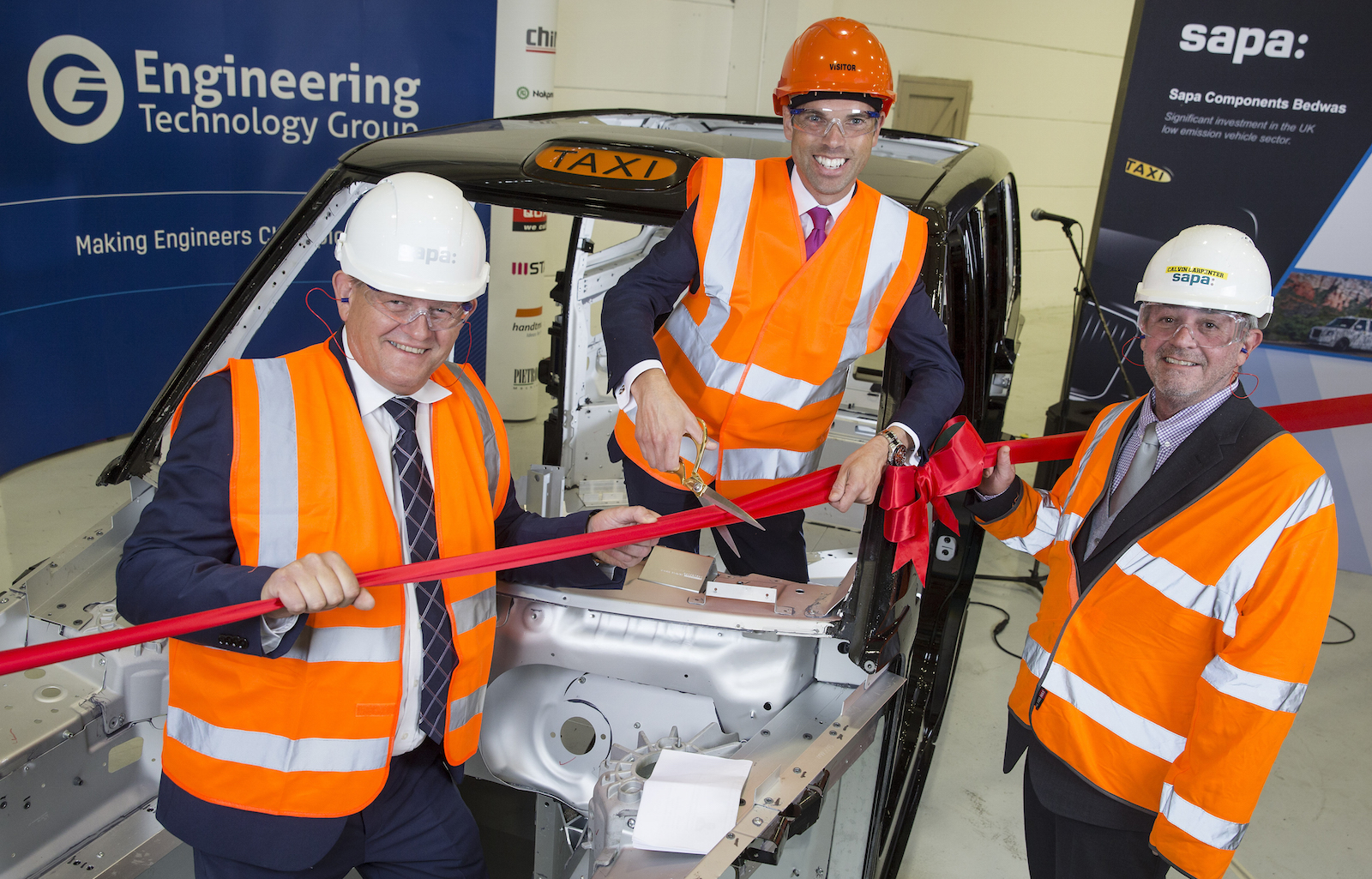
Sapa, which was recently acquired by Norsk Hydro, is reopening its extrusion factory in Bedwas, Wales, U.K. to supply the growing automotive industry demand for lightweight body structure solutions. The company is investing £9.6 million in the plant refurbishment and new equipment to supply advanced aluminum components.
“This is a great day for both Sapa and manufacturing in Wales,” said John Thuestad, Extrusion Europe business area president, Sapa. “Sapa had to end extrusion operations in Bedwas in 2014 due to overcapacity in the market, but we are now pleased to be able to return to Wales with our new automotive components business. This is a good example of how industrial companies such as Sapa are growing in advanced markets fueled by demands for lighter vehicles and more sustainable materials.”
The investment is backed by £550,000 from the Welsh government, which helped secure the project. In excess of 130 jobs will be created over the next five years. Production at the Bedwas facility is due to start in the final months of 2017 and will ramp up over the next five years, creating 130 jobs.
Lightweight Cars Fueling Growth

The first customer to be supplied from the refurbished Bedwas facility will be London Electrical Vehicle Company (LEVC), which has developed an all new zero-emissions capable black cab, the TX5, with an aluminum frame. Formerly known as the London Taxi Company, LEVC is owned by Chinese parent company Geely. In March 2017, LEVC opened a new facility in Coventry to manufacture the new TX5 vehicles, with the aim of producing 5,000 vehicles a year by 2019.
“It is a culmination of nearly three years working with London Taxi throughout its development phases to enable us to supply major body components to the ‘new state of the art’ facility in Ansty, Coventry,” said Calvin Carpenter, managing director of Sapa Components UK.
An all-new, lightweight body structure has been designed exclusively for the TX5 electric drivetrain, featuring an aluminum frame and composite panelling. New construction techniques have been used to build a taxi that is lighter, more fuel efficient, and better to drive – but still designed for the rigorous demands and life expectancy of a purpose-built taxi.
A key aspect of the new design is the aluminum structure, which is is bonded together with special adhesives. It is 30% lighter than an equivalent steel structure, and the bonding method is more than twice as strong as welding. The resulting structure is incredibly strong, making the new electric taxi the safest that LEVC has ever produced. Pound for pound, aluminum can absorb twice the crash energy of mild steel — and because it’s lighter, there is less energy to dissipate in the first place.
The aluminum structure is also anodized, making it extremely corrosion resistant and durable, remaining as strong as the day it was formed.

“The Welsh Government is proud to have supported Sapa’s extensive investment in the refurbishment of its site in Bedwas and I am proud that Wales will be playing a key role in the production of a new generation of environmentally friendly black cabs,” said Ken Skates, secretary of Economy and Infrastructure for the Welsh government. “Wales has a growing reputation as a location for supporting innovative new technologies and the low carbon vehicle sector is a particular growth area for our advanced materials and manufacturing industry.”
